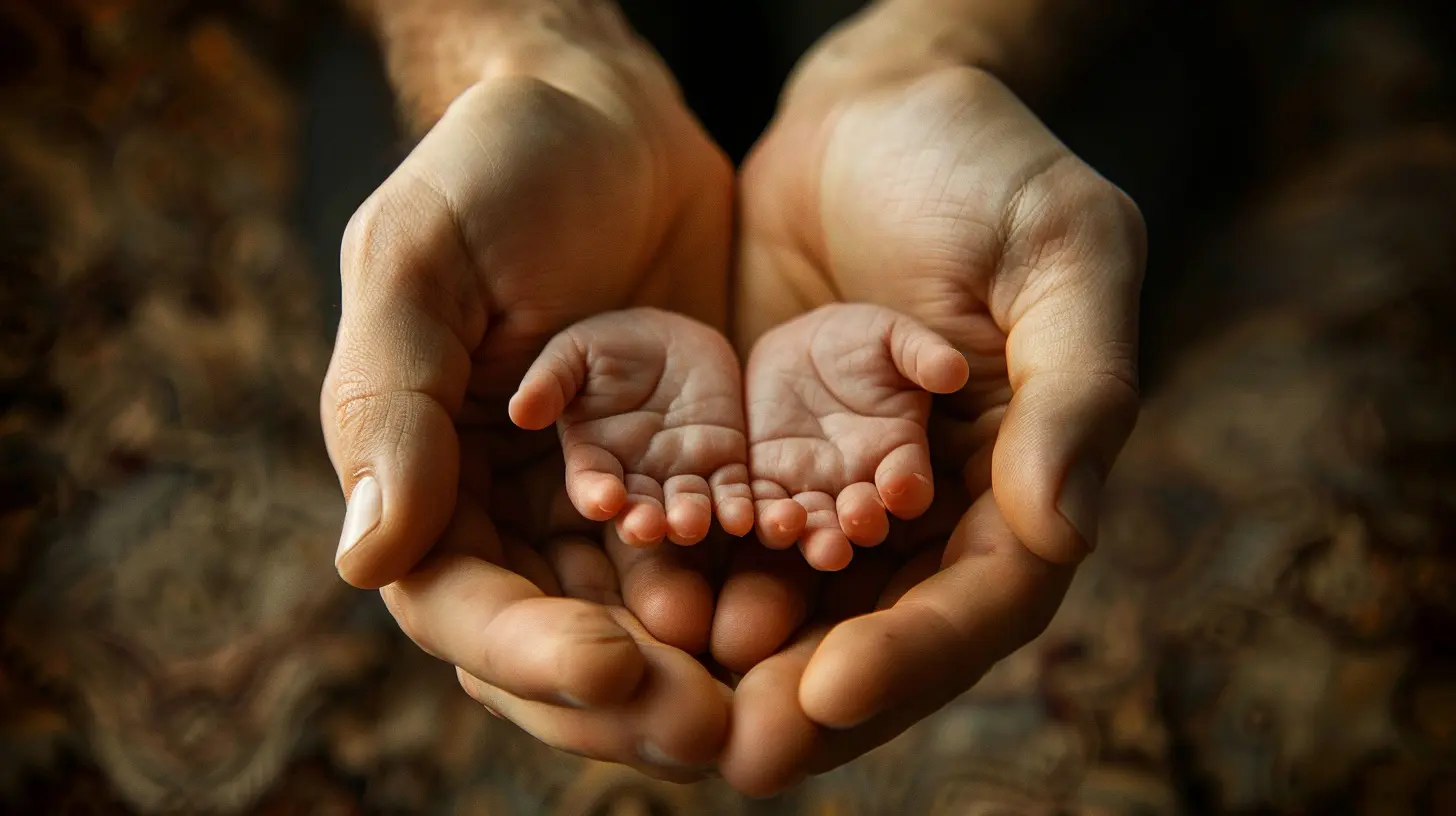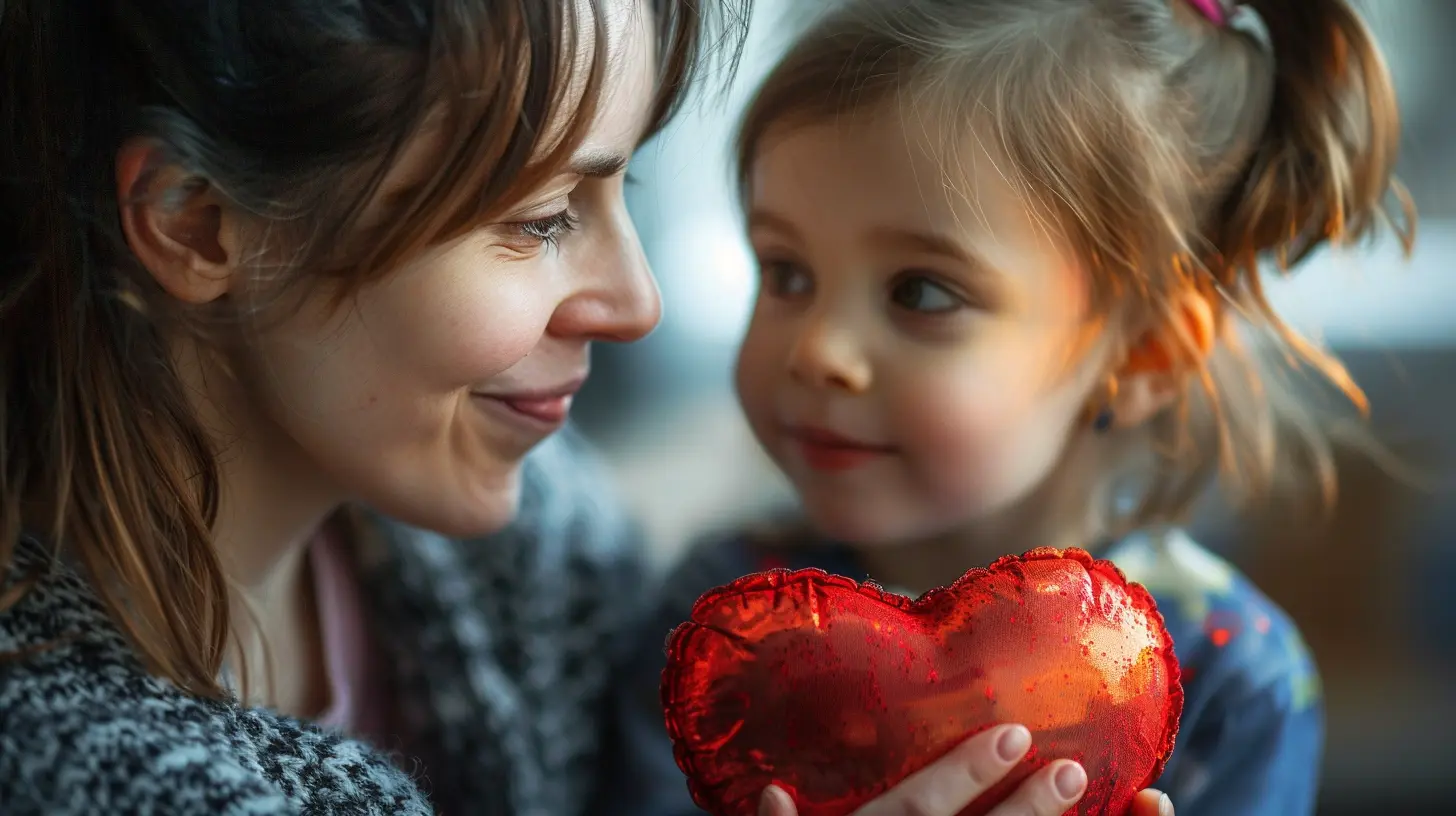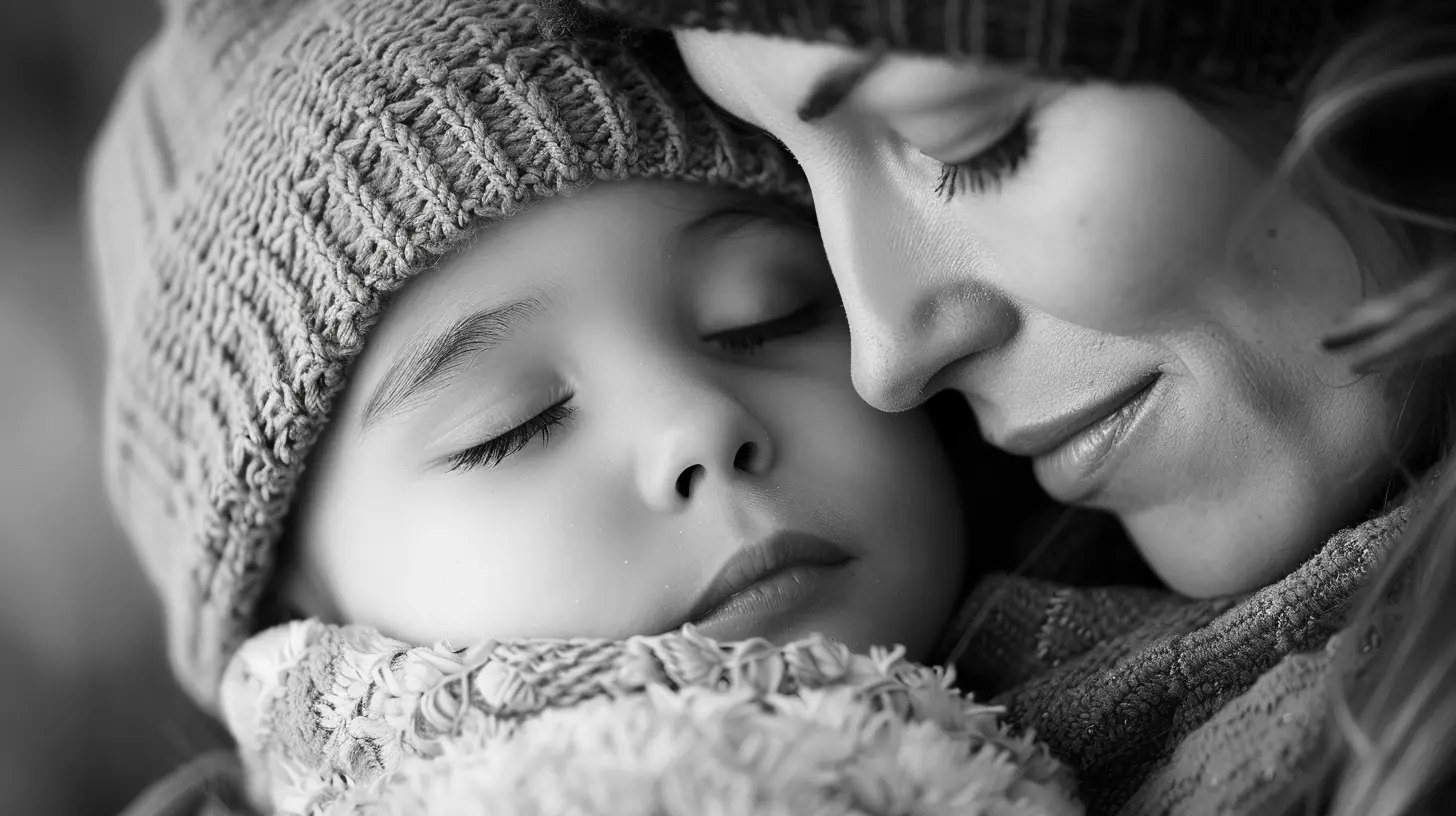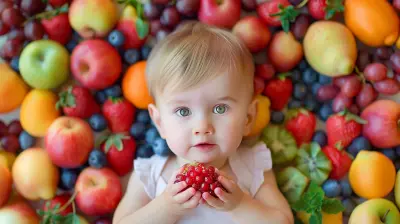Unconditional Love: The Foundation of Positive Parenting
17 October 2025
Parenting is... well, it’s kind of like trying to put socks on a toddler while juggling spaghetti. It’s messy, unpredictable, and occasionally covered in peanut butter. But beneath all the chaos, one powerful glue holds everything together: unconditional love. Yep, that sticky, magical force that says, "No matter what, I’ve got you."
In this rollercoaster called parenthood, unconditional love isn’t just a sweet sentiment—it’s the foundation of positive parenting. And if you're thinking, “Okay, but what does that actually look like when your kid just used your lipstick to draw murals on the dog?” Stick around. We’re diving deep (and laughing a little) into why unconditional love is the real MVP of raising happy, resilient, and kind little humans.
What Is Unconditional Love? (Besides Something Dogs Have Totally Mastered)
Let's start with the basics. Unconditional love means loving your child without strings attached. It means showing them love and support even when they mess up, act out, or (accidentally?) flush your car keys down the toilet.Unlike conditional love—which is more like “I love you if you behave” or “I love you because you got good grades”—unconditional love says, “I love you, period.” No ifs, ands, or buts (okay, maybe a few buts, like, “But why did you eat glitter?”).
Kids don’t need you to be perfect. What they really need is to know they are safe and loved, no matter what. When they feel that? They thrive.
Why Is Unconditional Love So Important in Positive Parenting?
Positive parenting isn’t about being your child’s BFF or handing out gold stars every time they put on pants. It’s about fostering a relationship built on mutual respect, empathy, boundaries, and—you guessed it—unconditional love.Here’s what makes it so powerful:
1. It Builds Emotional Security
Ever watched a toddler leap from the top of the couch like a caffeinated superhero? They do it because deep down, they trust that someone will catch them—or at least clean up the aftermath.Unconditional love creates that sense of trust and security. It says, “The world may be wild, but this space with me is safe.” That emotional safety net helps kids build confidence, try new things, and bounce back when life gets rough.
2. It Encourages Authenticity
When kids know they're loved no matter what, they feel free to be themselves. Wild hair, weird interests, awkward phases, and all. They don’t have to pretend to be someone they’re not just to earn affection.That sets the stage for genuine self-esteem—not the kind based on trophies or follower counts, but the kind that sticks. And let’s be honest, there’s something wildly freeing about a 7-year-old who proudly wears a Batman cape to the grocery store because they can.
3. It Teaches Empathy and Compassion
Kids are like tiny emotional sponges with superhero hearing. They pick up on how we speak, react, and—most importantly—how we love. When we model love that doesn’t depend on performance, they’re more likely to offer that same grace to others.Translation: Fewer sibling wars and more, “You can play with my favorite toy.” (Okay, sometimes.)
“But What About Discipline?”—Said Every Sleep-Deprived Parent Ever
Now, before you start picturing a lawless household where the kids are sword-fighting with pool noodles and eating marshmallows for every meal, let’s clear something up.Unconditional love doesn’t mean zero rules. In fact, it needs boundaries to be healthy.
Discipline and love are not opposites. Discipline rooted in unconditional love sounds like:
- “I love you, and that’s why I can’t let you bite your brother.”
- “Throwing toys isn’t okay, but I still love you. Let’s figure it out together.”
See the difference? It’s not about punishment or making kids feel bad. It’s about teaching lessons with empathy, not lectures. Guiding with connection, not control.
How to Show Unconditional Love (Even When You’re Running on Coffee and Chaos)
Let’s be real—parenting isn't always warm fuzzies and heartfelt chats. Sometimes it's laundry piles taller than your kid and stepping on Legos at 2 AM. So how do we actually show unconditional love in the middle of real life?1. Separate the Behavior from the Child
This is huge. Instead of “You’re being bad,” say, “That choice wasn’t okay.” When kids hear criticism about their actions instead of their identity, they’re more open to change—and less likely to spiral into shame-town.2. Be Present (Even If You’re Covered in Mac & Cheese)
You don’t have to plan Pinterest-worthy activities to show up. Sometimes, it’s just sitting next to them while they explain at length why blue is better than red. Your presence tells them, “You matter.”3. Use Loving Language
Whether it’s “I love you no matter what” or “I’m proud of you even when things are hard,” words matter. Say it often, even when (especially when!) they’re not at their best.4. Repair After You Mess Up
Spoiler alert: You will mess up. You’ll lose your cool, say the wrong thing, or forget that it’s Pajama Day at school. But guess what? That’s also a teachable moment.Apologizing to your kids shows them responsibility, humility, and—yep—unconditional love. You’re modeling how they can own mistakes and make things right later.
5. Show Affection That Matches Their Love Language
Some kids want a hundred snuggles. Others light up when you draw silly comics in their lunchbox. Figure out what makes them feel loved and do that. (And don't worry—you don’t need a PhD in psychology to figure this out. Just watch what they respond to.)When It’s Hard to Love (Because Let’s Be Real, It Happens)
There are moments when loving unconditionally feels about as easy as folding a fitted sheet blindfolded. Maybe your child is pushing every button, or maybe you’re stretched so thin that even your eyeballs feel tired.Here’s the thing: You’re not alone, and you’re not failing. Loving a child doesn’t mean always feeling warm and fuzzy. It means choosing to show up, again and again, even when you’re frazzled, frustrated, or fantasizing about a solo vacation in a silent cabin somewhere.
Practice self-compassion. Take breaks. Ask for help. You can’t pour from an empty sippy cup, my friend.
Unconditional Love in Action: Real-Life Moments That Matter
Sometimes, unconditional love looks like a Hallmark movie. More often? It’s in the tiny, seemingly ordinary moments:- Sitting on the bathroom floor while your kid cries over a broken toy.
- Making pancakes in fun shapes even though they’ll still ask for cereal.
- Hugging them tight even after a tantrum about nothing (spoiler: it’s never nothing).
- Being their safe place, not their judge, after a tough day at school.
These little things are the big things.
Raising Kids with Unconditional Love = Raising Future Grown-Ups Who Don’t Need Therapy for That
Okay, some therapy is inevitable (thanks, teenage years), but here’s the golden truth: Kids who grow up knowing they are deeply loved tend to become adults who value themselves—and treat others the same way.Unconditional love isn’t just about parenting in the moment. It’s about raising emotionally intelligent, secure humans who know their worth doesn’t depend on performance, perfection, or approval.
And in today’s world? That’s a superpower.
Final Thoughts: Love Them When It’s Easy. Love Them When It’s Hard.
Parenting isn't about doing everything right. It’s about showing up with love, especially when it’s tough. It’s about saying, “You’re safe here,” even on the days when someone’s crying on the floor (and honestly, it might be you).Unconditional love doesn’t mean letting kids do whatever. It means guiding them with grace. Correcting without shaming. Loving without conditions.
So whether you’re knee-deep in diapers or navigating teenage drama, remember this: You don’t have to be a perfect parent. Just be a loving one. A human one. A “we’re-in-this-together” kind of parent.
Because at the end of the day, that’s what positive parenting is all about—messy, marvelous, unconditional love.
all images in this post were generated using AI tools
Category:
Positive ParentingAuthor:

Liam Huffman
Discussion
rate this article
1 comments
Bella Bailey
Unconditional love: the ultimate parenting superpower! It’s like giving your child a lifetime supply of hugs, but with more eye rolls and a sprinkle of 'Where did I hide the snacks?' Remember, love is patient… especially when negotiating bedtime for the 37th time!
November 1, 2025 at 4:53 AM

Liam Huffman
Absolutely! Unconditional love truly is the cornerstone of positive parenting, providing the patience and support needed for both the joyful and challenging moments.


